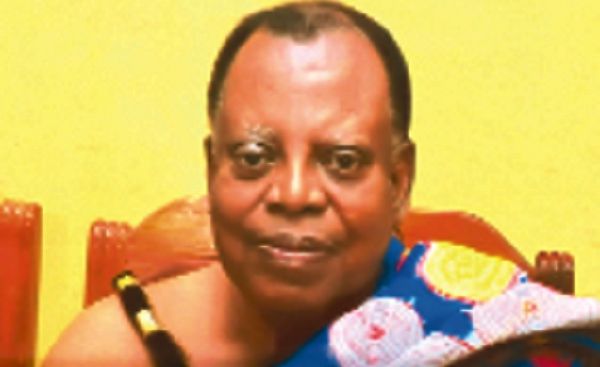The Chairman of the Ghana Arbitration Centre, Nana Professor Susubribi Krobea Boaten Asante, has advised lawyers, business executives and government officials to build competences in international business transactions to enable them to deal with disputes of a complex nature.
He said developing such competences would also help curb the government’s reliance on foreign expertise to resolve disputes involving multinational companies.
“I do not see any reason lawyers in this country cannot be experts in international petroleum agreements. I have sat as an arbitrator on cases involving the government of Ghana where about 11 government officials sat down while some middle-level lawyers of an American law firm were actually leading the litigation. This is unacceptable,” Nana Prof. Asante added.
The renowned arbitrator gave the advice when he addressed participants in the first Ghana Arbitration Day in Accra last Thursday.
Arbitration Day
The event was organised by the Ghana Chapter of the International Chamber of Commerce (ICC), a global body which promotes international trade through responsible business conduct and also provides dispute resolution services for international businesses and transactions.
Participants included a former Attorney-General and Ghana’s representative to the ICC’s International Court of Arbitration, Mrs Marietta Brew Appiah-Opong, and a renowned arbitrator and former Commissioner of the Commission on Human Rights and Administrative Justice (CHRAJ), Mr Justice Francis Emile Short.
Also in attendance were the Secretary-General of the ICC’s International Court of Arbitration, Mr Alexander G. Fessas, and its Vice-President, Ms Ndanga Kamau.
Arbitration is an alternative dispute resolution procedure outside the normal court process of litigation.
The ICC was founded in 1919 and currently has about 6.5 million members in about 134 countries.
Its dispute resolution arm, the International Court of Arbitration, sets arbitration and mediation rules which serve as the yardstick for resolving international business transaction disputes. It also conducts case management of disputes and appoints arbitrators to resolve such disputes.
![]()
Those in the picture include (from left): Justice Mr Emile Short, Nana Prof. S. K. B. Asante and Mrs Marietta Brew Appiah-Opong, Picture; EMMANUEL ASAMOAH ADDAI
Criticisms
Nana Prof. Asante, who is the Omanhene of the Asokore Traditional Area in the Ashanti Region, criticised the international arbitration process for what he described as its disregard for national laws, especially those of African countries.
He said the tendency for international arbitrators to use general international guidelines to resolve disputes, without recourse to domestic laws, was to protect foreign interests, to the detriment of local establishments.
“Ignoring such national laws undermines public interest and is a disservice,” he added.
Citing Ghana as an example, he explained that the 1992 Constitution required parliamentary ratification of international business transactions by the government.
Such a provision, Nana Prof. Asante said, was meant to scrutinise any deal entered into by the government, adding that it would, therefore, be a disservice to the country if an international arbitration resolved a dispute without taking such a provision into consideration.
Cases
Mr Fessas, for his part, said only 1.4 per cent of arbitrators at the ICC were from sub-Saharan Africa, a situation which he said needed to be improved.
The ICC, he said, had put in place measures to involve more arbitrators from Africa to improve diversity in international arbitration.
Writer’s email: emma.hawkson@graphic.com.gh


